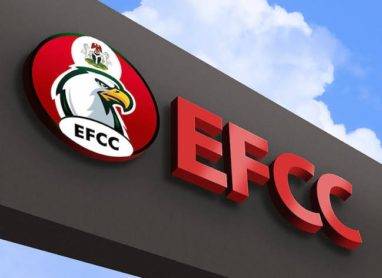In a recent development, the Kogi State Assembly has made a resolute call for the removal of former Governor Yahaya Bello’s name from the list of individuals wanted by the Economic and Financial Crimes Commission (EFCC). This decision came during a plenary session held on Tuesday, where members of the House convened to address pressing public concerns.
During the session, Jibrin Abu, the House member representing Ajaokuta State Constituency, brought forth a motion urging his colleagues to deliberate on what he termed an “urgent public issue.” Abu highlighted the purported smear campaign against former Governor Bello, emphasizing the need for swift action to address the matter.
In his impassioned plea titled ‘A Plea to Cease the Baseless, Frivolous, and Untrue Smear Campaign against Former Kogi State Governor, Alhaji Yahaya Bello’, Abu vehemently defended Bello against the allegations leveled by the EFCC. He argued that the accusations were unfounded and lacked substantial evidence to warrant Bello’s inclusion in the list of wanted individuals. Abu further asserted that Kogi State, given its financial status, could not possibly sustain such a staggering loss as alleged by the EFCC, thereby dismissing the claims as “laughable” and baseless. He called upon innocent Nigerians and citizens of Kogi State who had believed the accusations to retract their support, denouncing the purported smear campaign as detrimental to Bello’s reputation and the state’s integrity.
Challenges to the EFCC’s Allegations and Legal Ramifications
The Kogi State Assembly’s resolution to challenge the EFCC’s allegations against former Governor Yahaya Bello underscores a broader debate surrounding the agency’s investigative practices and the legal implications thereof. While the EFCC is tasked with combating financial crimes and corruption, its handling of high-profile cases often faces scrutiny, with critics alleging selective prosecution and political bias.
The call for Bello’s exoneration raises questions about the burden of proof in corruption cases and the presumption of innocence until proven guilty. Critics argue that the EFCC’s public naming of individuals as “wanted” before securing concrete evidence undermines due process and tarnishes reputations without sufficient cause. Additionally, the potential repercussions of false accusations on political figures extend beyond reputational damage, with legal and electoral ramifications at stake.
Moreover, the Kogi State Assembly’s stance signals a shift in the dynamics between state governments and federal agencies, highlighting the need for cooperation and transparency in matters of law enforcement. The resolution serves as a reminder of the delicate balance between accountability and fair treatment under the law, emphasizing the importance of thorough investigation and factual accuracy in combating corruption.
Political Discourse and Public Perception
The Kogi State Assembly’s intervention in the case of former Governor Yahaya Bello not only has legal ramifications but also carries significant implications for political discourse and public perception. By publicly challenging the EFCC’s accusations and rallying support for Bello’s exoneration, the Assembly is shaping the narrative surrounding the former governor’s legacy and political future.
The resolution serves as a rallying cry for Bello’s supporters, galvanizing political momentum and bolstering his standing within the state. It underscores the Assembly’s unwavering support for one of its own and signals solidarity in the face of external scrutiny. Furthermore, the Assembly’s defense of Bello resonates beyond the confines of Kogi State, reverberating throughout the Nigerian political landscape and shaping public opinion on matters of corruption and accountability.
However, the Assembly’s stance also invites criticism and scrutiny, with detractors questioning the motives behind its fervent defense of Bello. Skeptics may view the resolution as a strategic maneuver aimed at shielding a political ally from accountability, rather than a genuine pursuit of justice. Additionally, the Assembly’s unequivocal rejection of the EFCC’s allegations raises concerns about the integrity of state institutions and their ability to uphold the rule of law impartially.
In conclusion, the Kogi State Assembly’s call for the removal of former Governor Yahaya Bello’s name from the EFCC’s wanted list is a nuanced and multifaceted issue with far-reaching implications. As the legal and political saga unfolds, stakeholders must navigate the delicate balance between accountability, due process, and political expediency, mindful of the broader implications for governance and public trust.
Table of Contents
Discover more from OGM News NG
Subscribe to get the latest posts sent to your email.














